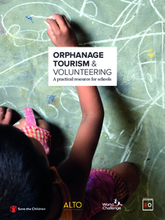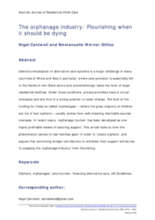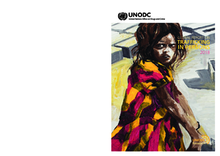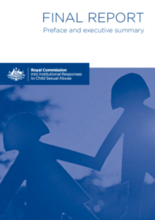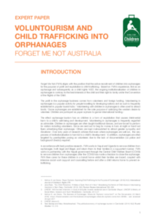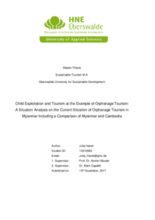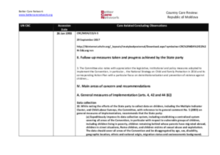Displaying 201 - 210 of 469
The resources in this packet have been developed to support Australian schools to navigate the complexities of engagement with orphanages and residential care institutions overseas as part of service learning and international study programs.
The objective of this article is to present a portrait of the baby factory phenomenon in Nigeria. The precipitating factors that fuel the trade are discussed, and suggestions for an enduring approach to combat this crime are offered.
This article looks at how the orphanage industry serves to tear families apart in order to ‘create orphans’, and argues that convincing foreign contributors to withdraw their support will be key to stopping the ‘orphanage industry’ from flourishing.
This Global Report on Trafficking in Persons describes human trafficking on a global scale, including the incidences of child trafficking per region and country.
On 15 December 2017 the Australian Royal Commission into Institutional Response to Child Sexual Abuse presented a final report to the Governor-General, detailing the culmination of a five year inquiry into institutional responses to child sexual abuse and related matters.
This session of the World Travel Market in London focused on orphanage tourism and featured speakers from the Better Volunteering Better Care Initiative and other partners, including Save the Children, Friends International, Lumos, and People and Places.
This expert paper by Forget Me Not Australia was published as a part of the Global Study on Sexual Exploitation of Children in Travel and Tourism and it presents as a case study the story of the organization from its founding to its current work.
This paper is based on a review of 20 multi-national European Commission funded projects about child trafficking.
This thesis focused on the two questions ‘What is the current situation on orphanage tourism in Myanmar?’ and ‘What are the causes of orphanage tourism?’.
This country care review includes the care related Concluding Observations adopted by the Committee on the Rights of Persons with Disabilities and the Committee on the Right of the Child at their recent examinations of the State's report.

